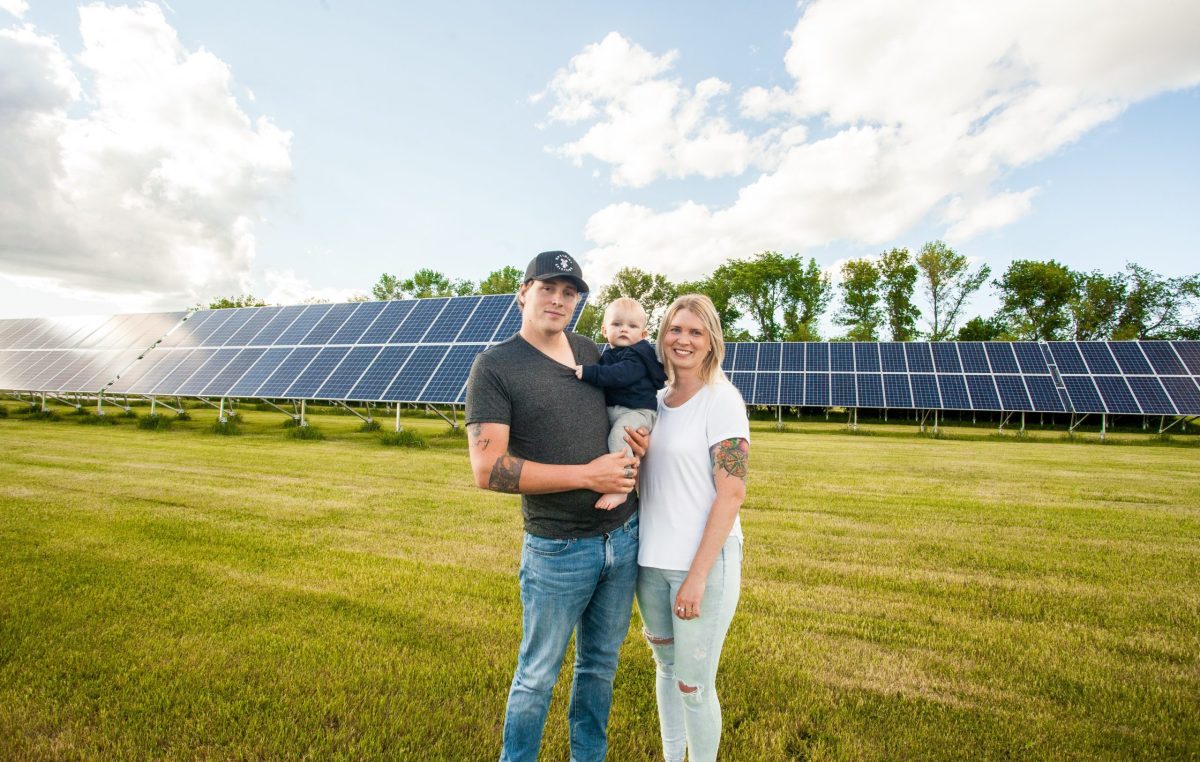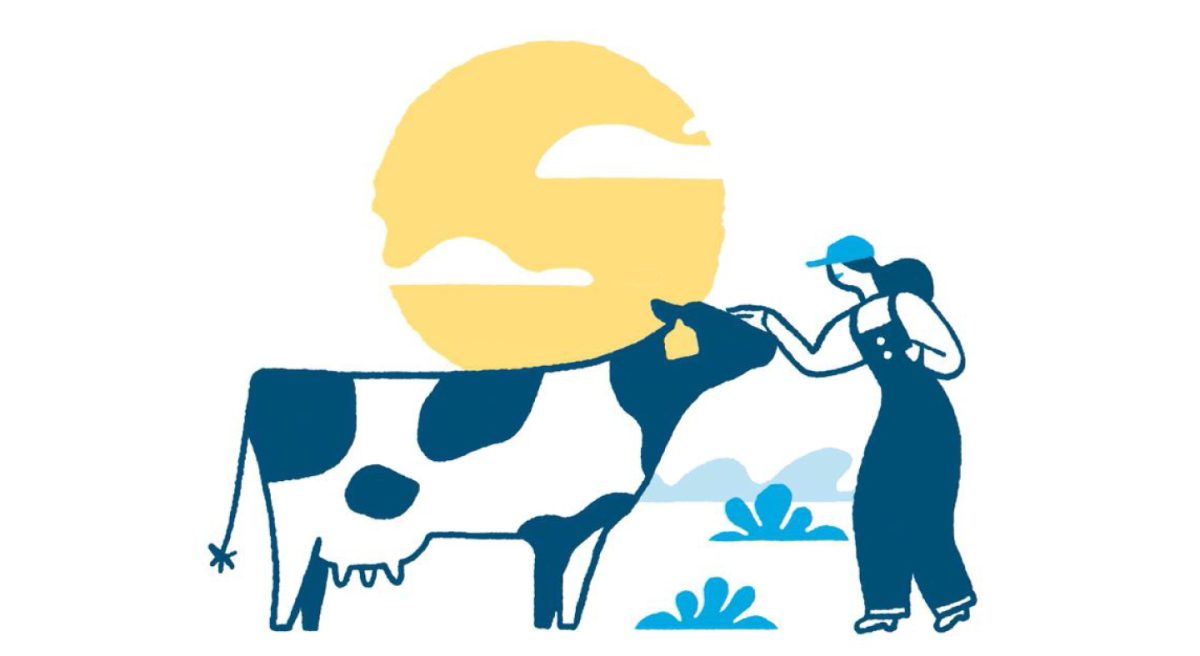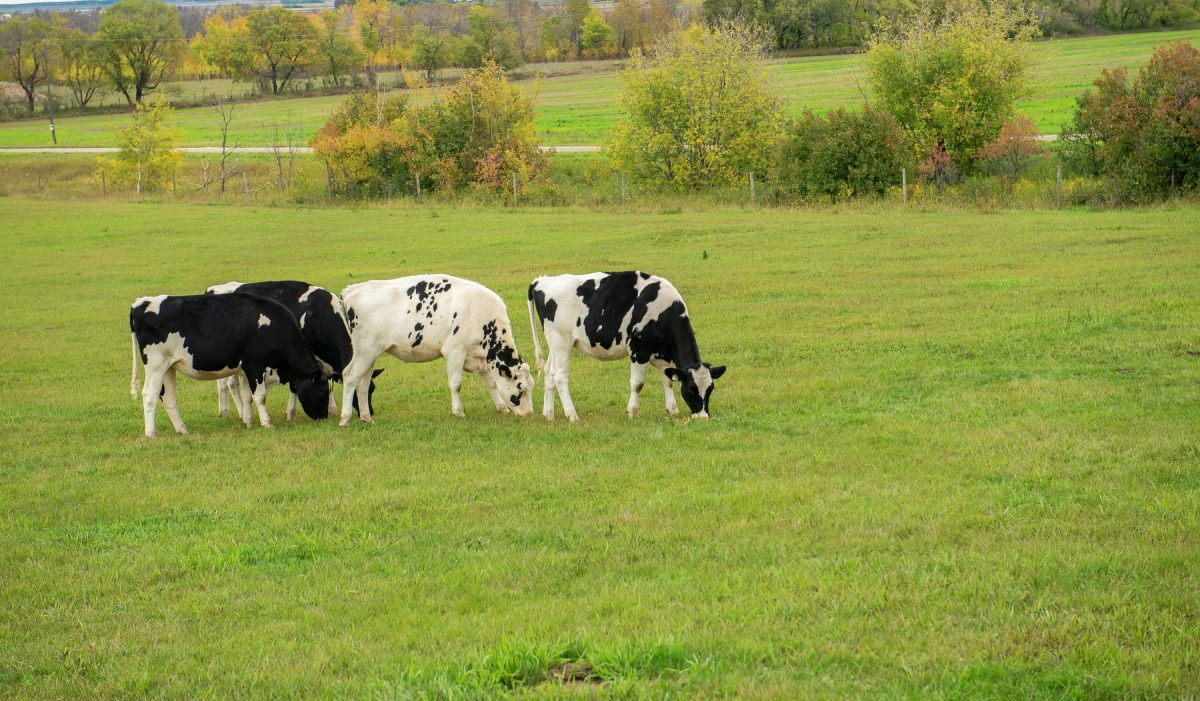There is no question that farmers, and dairy farmers especially, are passionate about the animals in their care and making a living from the land. That passion extends to making sure that land is sustainable for future generations.
So, when Manitoba Hydro’s Power Smart Solar Energy Program provided an opportunity to pilot a large solar energy project, Optimist Holsteins leapt at the chance.
Within months of applying for the program, the 130-cow family-owned dairy farm near Otterburne – a farming community 50 km south of Winnipeg – flipped the switch on 540 solar panels with a capacity to produce 175 kilowatts (kw) of electric power per hour. They made history by becoming the first dairy farming solar energy project of its size in Manitoba.
Albert Gorter and Chelsea Enns
“The decision to move to solar technology was an easy one for us,” remarks Hans Gorter, who farms with his wife Nelleke, son Albert, and daughter-in-law Chelsea. “As farmers we are in tune with the land so it’s natural to implement sustainable operating systems when and where we can.”
Solar energy is a sustainable resource that is easy to access and creates very little carbon footprint to produce. It’s a clean form of energy that is renewable at no extra cost for the life of the solar panels, which can be up to 25 years.
Optimist Holsteins’ solar energy system sits on land that was only good for growing grass. Two and a half years later that space is now among the most productive pieces of land they own.
“The farm on average will use about 1,000 kilowatt hours (kWh) or more every day. The average solar production is around 750 kWh daily, year-round, which is equal to about 75 or 80 percent of our electricity needs,” explains Gorter. To put that in perspective, the average home in Manitoba uses less than 2,500 kWh of energy every month.
Optimist Holsteins’ environmental leanings are also influenced by Gorter’s European roots. Gorter and his wife moved to Canada from the Netherlands in 1987. He has many friends in Europe who use solar technology.
Optimist Holsteins’ system uses the same type of panels as many of Gorter’s European farming friends – but here in Manitoba, he is getting 20 percent more solar production.
“On average, we in Manitoba have more bright sunny days, making Manitoba an ideal place for solar energy systems,” Gorter adds.
While they aren’t the largest solar energy system in the province anymore, Optimist Holsteins is looking forward to the next big movement in solar technology – the day when solar-powered cars will be the norm and it’s their plan to be the first farm in their area to own one.
Photos by Cric Studios.


